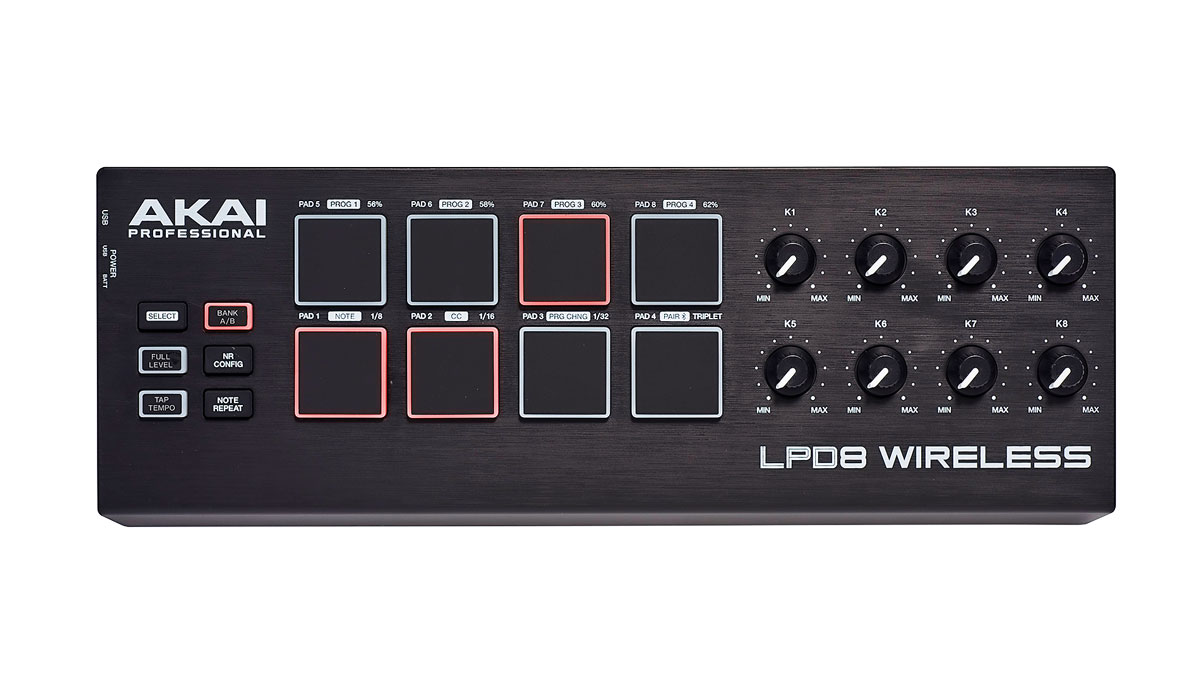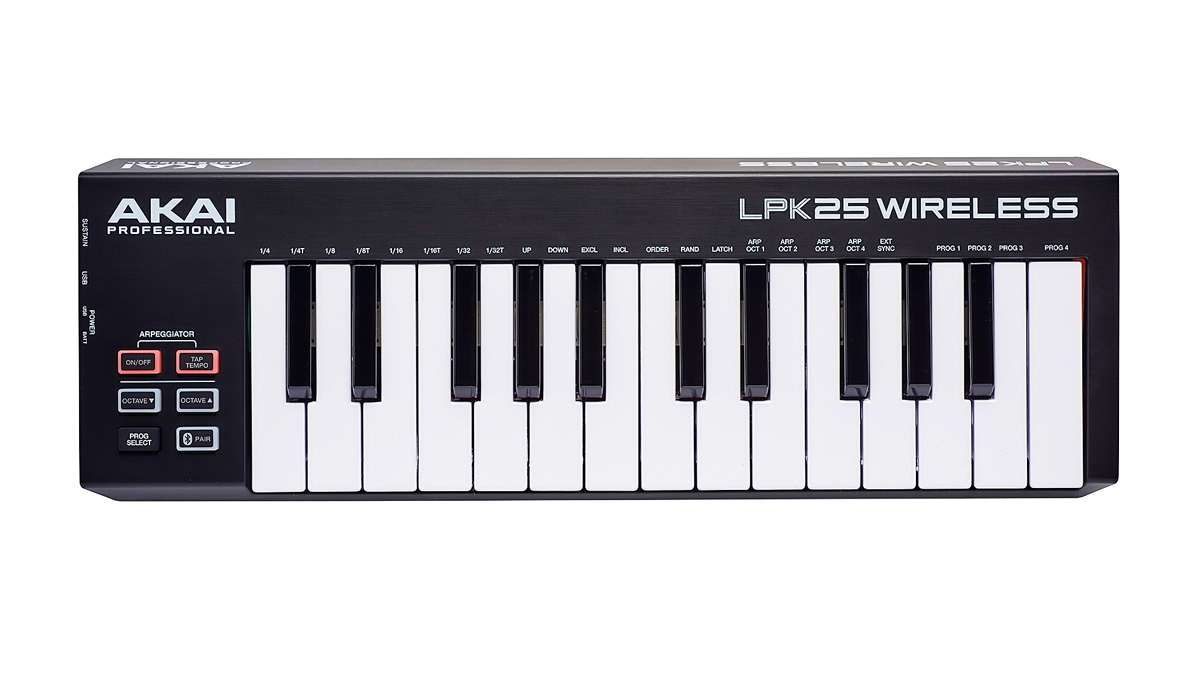MusicRadar Verdict
Wireless ability isn’t the only improvement made to these controllers - they also have plenty of expanded functions that will be indispensable.
Pros
- +
There’s now a sustain pedal socket on the LPK25, plus Note Repeat, Swing and an extra pad bank on the LPD.
- +
Intuitive editing software allows further customisation of controls and easy setup with your chosen software.
Cons
- -
There are still no pitch or mod wheels on the LPK25.
MusicRadar's got your back
Akai’s new LPK25 Wireless controller features a 25-note minikey keyboard with velocity sensitivity.
It’s a very compact unit, bus-powerable over USB from your laptop or studio computer. For travelling, its diminutive size and low weight mean you can sling it into a bag and not even realise it’s there, and battery power is now included, making a big improvement over the wired models.
The real killer feature, though, is Bluetooth MIDI, which allows pairing with iOS, Mac or Windows devices. This is, thankfully, easy to set up using the Pair button, and works reliably, enabling triggering of iPad software over Bluetooth without the need for a USB cable or camera connection kit.
The general build quality impresses, and the overall look has been updated in line with Akai’s other controllers (red side panels and black casing). There’s just enough weight for it to not feel flimsy, plus grippy feet to stop it sliding about. The mini-keybed works fine for simple note, chord or drum input, and Akai has also replaced the hard-to-read red labelling found on the wired models with white - a big improvement in darker conditions.

While there’s still no room for pitch or mod wheels (or a joystick), a handy six-mode arpeggiator is included, and there’s now a sustain pedal socket and a tap tempo button.
Four programmable memories are accessed via a Program Select button. The software editor allows you to fine- tune settings and tweak the four slots to taste. The LPK25 Wireless does the job well, for a very modest outlay.
The LPD8 Wireless is also very compact and portable, and like the LPK25, it’s thicker than the wired model to accommodate the battery compartment (three AAs). It’s also USB-powered and features eight MPC-style orange/green-backlit pads (now with two banks for 16 sounds). These feel surprisingly nice under the fingers (better than some competitors’ more expensive offerings, even), and there are eight assignable knobs for easily controlling DAW parameters.
Want all the hottest music and gear news, reviews, deals, features and more, direct to your inbox? Sign up here.
The general build is pretty solid here too, similarly giving you four program (scene) memories, plus the ability to send MIDI program change and CCs too. Everything works great in practice, and again, the battery power and Bluetooth MIDI are liberating and indispensable features that offer big improvements over the originals. If you’re looking for reasonably priced, portable, battery-powerable Bluetooth MIDI controllers, the LPK25 and LPD25 come highly recommended.
